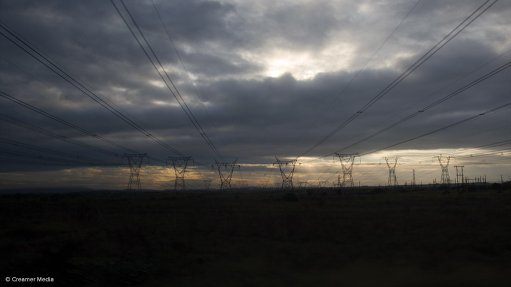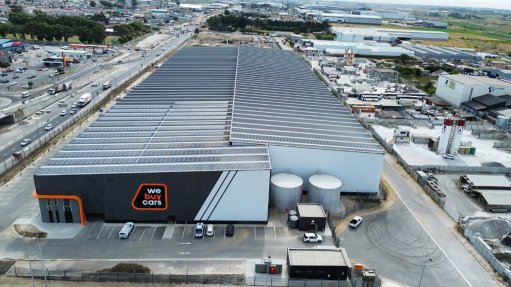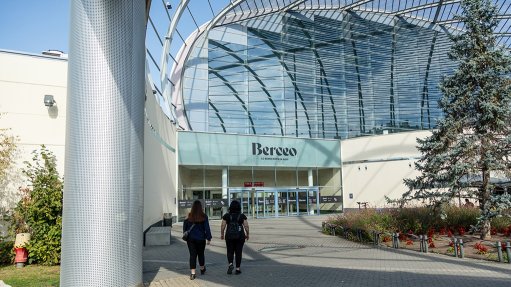A unified approach to water and wastewater challenges
This article has been supplied.
By Johan Potgieter, Cluster Industrial Software lead, and Ettienne van Niekerk, Cluster Water Segment leader at Schneider Electric
South Africa’s water and wastewater (WWW) woes are well documented and mimic what can be described as a worldwide crisis with the United Nations (UN) citing that on a global scale, 1.8 billion people are using contaminated water, and 2.3 billion people live in water-stressed countries.
The country’s water infrastructure challenges are further exacerbated by load shedding which now sees residents from municipalities such as Johannesburg, Tshwane and Cape Town urged to use water sparingly as reservoirs are not filling up fast enough due to power interruptions.
In addition, wastewater treatment faces ongoing challenges. For example, many wastewater treatment plants are not operating at full capacity, leading to the release of untreated or partially treated wastewater into rivers and other water bodies. This has a significant impact on the environment and public health leading to high rates of water-borne diseases such as cholera and typhoid.
The above directly impacts communities particularly those residing in rural and informal settlements who don’t have access to clean water or adequate sanitation facilities – a basic human right.
To mitigate water quality issues, South Africa has adopted the Blue and Green Drop Programme which has been effective in raising awareness of WWW management issues in the country.
The good news is many municipalities have taken steps to improve their services in line with the Blue and Green Drop Programme. However, it has also faced some criticism, with some municipalities raising concerns about the high cost of compliance and subsequent lack of support.
Whichever way you look at it, South Africa’s WWW is facing major challenges and require firm investment in infrastructure and technology to stabilise and future-proof its operations.
A unified approach
Digitalisation and digitisation can bring significant benefits to WWW such as improving efficiency and reliability of water supply, reducing water loss, and optimising the use of water resources.
A good place to start is investing in a robust Unified Operating Centre (UOC). For one, it provides a centralised facility that brings together all the information and tools needed to monitor, control, and optimise WWW operations. A UOC can go a long way in improving the efficiency, reliability, and safety of WWW services.
A UOC typically incorporates a range of digital technologies and systems such as:
- Supervisory Control and Data Acquisition (SCADA) systems that collect data from remote WWW infrastructure and provide real-time information on the status of operations.
- Geographic Information Systems (GIS) - these systems use maps and spatial data to provide a visual representation of WWW infrastructure, enabling operators to easily identify and locate issues.
- Advanced analytical and modelling tool that allow for the analysis of large amounts of data on water usage, infrastructure, and environmental factors, which can be used to optimise operations and identify potential issues.
- Remote monitoring and control systems that enable the remote monitoring and control of water and wastewater infrastructure such as pumps, valves, and treatment plants.
- Alarm and event management systems. These systems provide real-time notifications of alarms and events, enabling operators to quickly respond to issues.
Through Schneider Electric’s innovative smart water technologies and services, we aim to make water safe, reliable, sustainable, and efficient across the entire water cycle.
Article Enquiry
Email Article
Save Article
Feedback
To advertise email advertising@creamermedia.co.za or click here
Comments
Press Office
Announcements
What's On
Subscribe to improve your user experience...
Option 1 (equivalent of R125 a month):
Receive a weekly copy of Creamer Media's Engineering News & Mining Weekly magazine
(print copy for those in South Africa and e-magazine for those outside of South Africa)
Receive daily email newsletters
Access to full search results
Access archive of magazine back copies
Access to Projects in Progress
Access to ONE Research Report of your choice in PDF format
Option 2 (equivalent of R375 a month):
All benefits from Option 1
PLUS
Access to Creamer Media's Research Channel Africa for ALL Research Reports, in PDF format, on various industrial and mining sectors
including Electricity; Water; Energy Transition; Hydrogen; Roads, Rail and Ports; Coal; Gold; Platinum; Battery Metals; etc.
Already a subscriber?
Forgotten your password?
Receive weekly copy of Creamer Media's Engineering News & Mining Weekly magazine (print copy for those in South Africa and e-magazine for those outside of South Africa)
➕
Recieve daily email newsletters
➕
Access to full search results
➕
Access archive of magazine back copies
➕
Access to Projects in Progress
➕
Access to ONE Research Report of your choice in PDF format
RESEARCH CHANNEL AFRICA
R4500 (equivalent of R375 a month)
SUBSCRIBEAll benefits from Option 1
➕
Access to Creamer Media's Research Channel Africa for ALL Research Reports on various industrial and mining sectors, in PDF format, including on:
Electricity
➕
Water
➕
Energy Transition
➕
Hydrogen
➕
Roads, Rail and Ports
➕
Coal
➕
Gold
➕
Platinum
➕
Battery Metals
➕
etc.
Receive all benefits from Option 1 or Option 2 delivered to numerous people at your company
➕
Multiple User names and Passwords for simultaneous log-ins
➕
Intranet integration access to all in your organisation


















